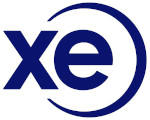There are three tax rates in New Zealand, which are currently as follows:
| Taxable Income ($) | Tax Rate (%) | Cumulative Tax ($) |
| 0-38,000 | 19.5 | 7,410 |
| 38,001-60,000 | 33 | 14,670 |
| over 60,000 | 39 |
Under recent tax changes, if you receive a lump sum payment (e.g. bonuses, back pay or retirement) and your annual income is over $60,000, you can elect to pay the higher tax rate of 39 per cent on the lump sum and therefore avoid ‘squaring up’ your tax at the end of the year. If you receive a redundancy payment which together with the annual value of your income for the previous four weeks is less than $38,000, you will pay a flat rate of 21 per cent tax on the redundancy payment.
Rebates
Before you're liable for income tax, you can deduct certain allowances (known as rebates) from your gross salary, which reduce your tax bill. Some income rebates, such as the low earner rebate, are built into the PAYE rates but others, such as the housekeeper, childcare and donations rebates, must be claimed from the IRD on separate forms. Key rebates include:
- child taxpayer rebate ($156), available for children under 15 or still at school;
- housekeeper rebate ($310), which generally includes childcare costs for working parents;
- donations rebate ($630), on charitable donations of $1,890 or more;
- low income earner rebate (4.5 per cent of net income up to $9,500 and 1.5 per cent of income above $9,500);
- transitional tax allowance ($728, reduced by 20¢ per $1 of earnings over $6,240), which is available to full-time earners working at least 20 hours per week.
Tax rebates must be claimed by 30th September following the end of the relevant tax year. Expenses associated with employment (such as clothing or travel to work) cannot usually be claimed as a tax allowance in New Zealand. However, the self-employed can claim legitimate business expenses. Interest on a mortgage cannot be claimed as a tax allowance in New Zealand.



